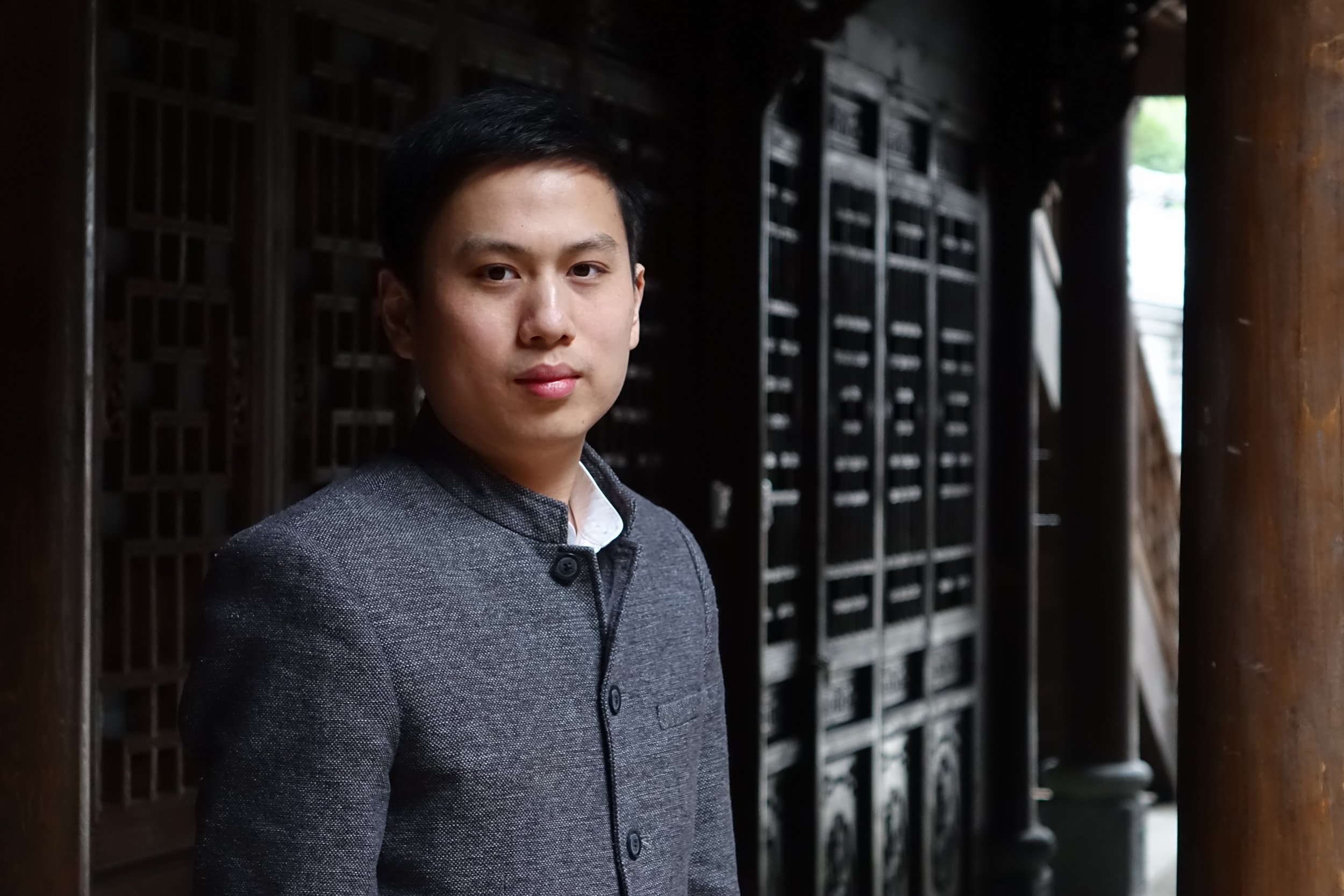Yanchen YE: Sichuan Boiled Fish
Performers: Matt Albert and Andy Hudson
水煮鱼 | Sichuan Boiled Fish (2024)
Instrumentation: violin and bass clarinet
Duration: 10:00
Program note:
Sichuan Boiled Fish (水煮鱼) begins where the Yangtze River meets Chongqing’s fog—a dish born on fishing boats, where rough hands tossed freshly caught fish into communal woks blazing with chili and the tingling spark of huājiāo (花椒). This was food as survival, as camaraderie, steeped in the sweat and currents of the riverfolk. Yet today, its name circles the globe: from Chengdu’s steam-clouded hotpot halls to Chinatown storefronts where "Authentic Sichuan" glows beside neon dragons. Every culture that embraces it rewrites its story.
I wrote this piece after five years away from Chongqing. Memory, like cuisine, distorts with distance. What emerged wasn’t a tribute to tradition, but a ghost of it: Imagine a quiet courtyard pond where a fish rules its watery kingdom. A mansion master plots a capture, and a kitchen transforms sustenance into artistry--blades moving like calligraphy brushes, spices blooming in precise clouds. This isn’t the fish of my grandmother’s stories; it’s a new creature swimming through my imagination.
When traditions travel, what do we gain and lose in translation? That American-Chinese storefront version, some Tokyo fusion experiment, even this courtyard fantasy—each feels both alien and familiar. Does the elegance of that final kitchen scene feel like reverence? Betrayal? Or simply another way of being? This piece holds no answers. It’s a vessel—for my nostalgia, for your imagination.
Movements:
I. 方寸塘心 | Once in a pond
青砖小塘 一尾肥鲢 向隅慢踱
Moss-embraced bricks cage the silt-stuffed pond.
A silver carp—ponderous, a sunken monarch—
measures the circuit of its shadow.
II. 困鳞记 | A Failed Escape
履声近 袖半挽 旧网乍提 鱼尾裂水
Footsteps wreck the mirrored water.
Silk sleeves rolled high, bared for labor.
A weathered net springs taut—
tail fin cracks the surface glass.
III. 葱·姜·蒜 | Onion, Ginger, and Garlic
刃凝霜 椒霰落 红油封喉处 家味尚存?
Steel blades frost the kitchen's breath.
Chili-shot volleys spatter marble.
Crimson oil scalds the throat—
does this kindled numbness
still taste of home?
About Yanchen Ye
Yanchen Ye is a rising composer whose music resonates across international stages, performed by leading ensembles including the MDR Leipzig Radio Symphony, Seattle Symphony, and China’s National Center for the Performing Arts. His work often uncovers dualities within simple and familiar ideas, translating shared human experiences into explorations of belonging. The National Ballet of China commented that his music "powerfully resonates with contemporary yearnings."
A recipient of multiple honors including two American Prizes, Ye achieved his breakthrough when The Morning at Bita Lake won the National Center for the Performing Arts’ Composition Prize. Following its premiere by the National Ballet of China, conductor Chen Zuohuang championed his work on Guiyang Symphony’s five-city tour. Overseas recognition followed swiftly: UK’s Vale of Glamorgan Festival featured his new commissions, while Kristjan Järvi led its European premiere at Germany’s TONLAGEN Festival. Xizi (戏子), winner of the Celebrate Asia Competition, American Prize, and New Conductors Orchestra Competition, became another highlight, recently featured by Cabrillo Festival of Contemporary Music and Arkansas Symphony.
Critics have celebrated the arresting vitality of Ye’s musical language—from the "irresistible forward momentum" and "huge outpourings of clattering energy" (The Seattle Times) to its fluid shifts between "hushed harmonics and biting, Bartókian cross-rhythms" (Wales Arts Review). His orchestral imagination weaves "immense sonic tapestries that vividly depict natural forces" (Musik in Dresden), astonishing listeners with unexpected "varieties of color, rich layering, and powerfully sustained tension" (National Ballet of China).
Based in Michigan, Ye holds degrees from Russia’s Nizhny Novgorod Conservatory, New England Conservatory, and a DMA from the University of Michigan, where he also taught music theory, orchestration, and composition.


